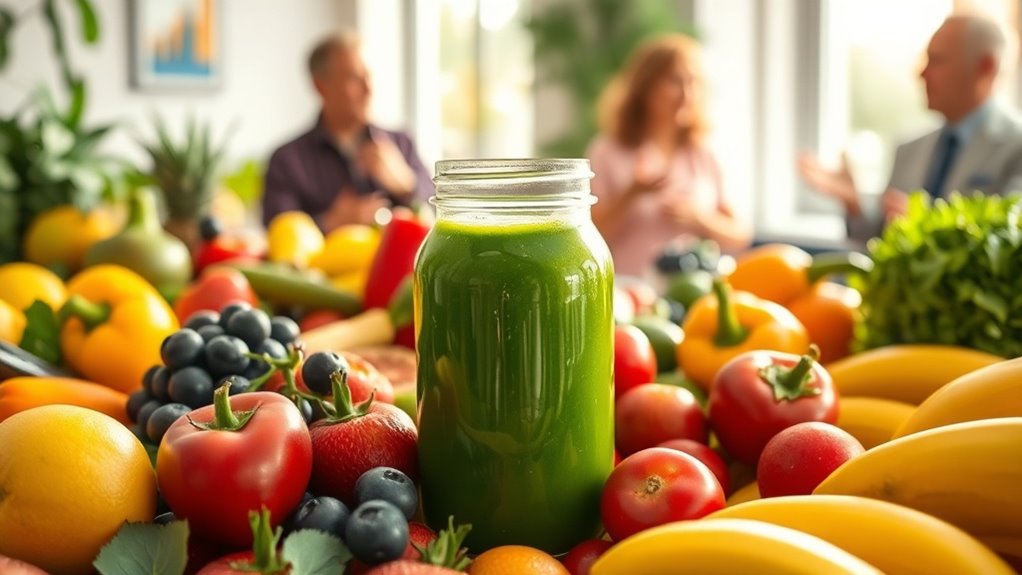Debunking the Top 5 Nutrition Myths This Spring
As the blossoms of spring emerge, it’s the perfect time to shed outdated nutrition beliefs that may be holding you back. You might think carbs are the enemy or believe detox diets cleanse your body. But evidence shows otherwise. It’s essential to reevaluate these myths for your health. What truths could transform your approach to nutrition this season?
Myth #1: Carbs Are the Enemy
While many people believe carbs are the enemy when it comes to weight management and overall health, this notion is rooted more in misunderstanding than in scientific fact.
In reality, carbs provide essential energy and nutrients. Instead of avoiding them, focus on choosing whole grains and vegetables. Additionally, healthy sources of carbs like fruits and vegetables can promote satiety and better overall nutrition.
Myth #2: Detox Diets Are Necessary for Spring Cleaning
Detox diets often gain popularity as people look for ways to cleanse their bodies, especially during spring cleaning season. However, your body naturally detoxifies itself through the liver, kidneys, and digestive system. There’s no scientific evidence supporting the need for restrictive detox diets. Emphasizing balanced nutrition and hydration is a more effective way to support your body’s natural detoxification processes. Additionally, staying hydrated with water and whole foods can greatly enhance your body’s ability to detoxify effectively.
Myth #3: Eating Fat Makes You Fat
Many people believe that eating fat leads to weight gain, but this myth oversimplifies the relationship between dietary fat and body weight.
Healthy fats, like those from avocados and nuts, support satiety and can aid weight loss when consumed in moderation.
It’s your overall calorie intake and balance of nutrients that matter most, not just the fat content of your diet. Including a variety of healthy fat sources in your meals can also enhance your overall satisfaction and nutrition.
Myth #4: You Need to Drink Eight Glasses of Water a Day
Although the recommendation to drink eight glasses of water a day is popular, it doesn’t apply universally to everyone.
Your hydration needs depend on factors like age, activity level, and climate.
Listen to your body’s cues—thirst signals and urine color can guide you.
Instead of fixating on a specific number, focus on maintaining healthy hydration tailored to your lifestyle. Monitoring symptoms of hydration can support overall well-being and health.
Myth #5: Organic Foods Are Always Healthier
While it’s common to assume that organic foods are always healthier than their conventional counterparts, the truth is more nuanced. Organic foods can contain higher levels of certain nutrients, but they aren’t automatically better. Factors like food processing and personal dietary needs matter more. Always prioritize a balanced diet with a variety of foods, regardless of their organic status. Focus on overall nutrition, not just labels. Furthermore, choosing organic aligns with values of health and sustainability, which can enhance your sense of community and well-being.




